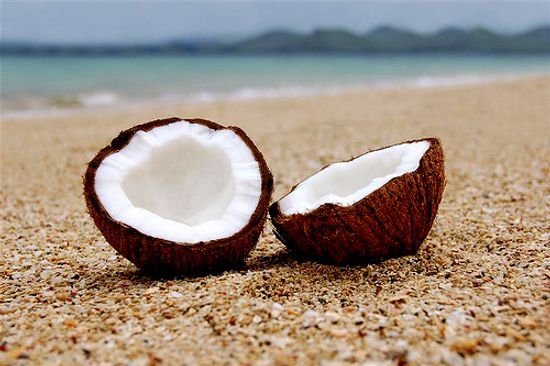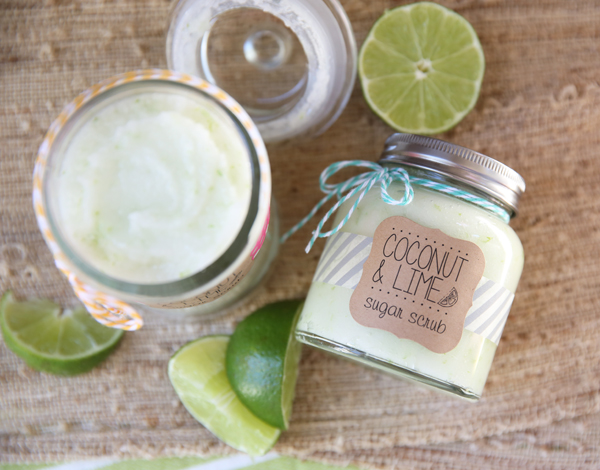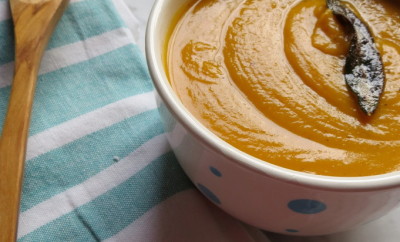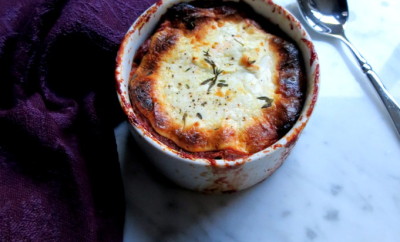How Do I Use Coconut Oil?
I know coconut oil is good for you, I’ve gathered that much just from seeing headlines in the news and reading a couple of health food blogs. But if you asked me why its so beneficial I’d probably give you a version of a blank stare. I know it’s one of the only oils that can be used safely on high heat, but that’s pretty much it. So, as I learn about this tropical nut, I thought I would share the fascinating/interesting/exciting secrets of coconut oil with you.
1) Coconut Oil Helps You Loose Weight
Coconut oil is mostly made up of medium-chain fatty acids (MCFAs), also called medium-chain triglycerides or MCTs. Medium-chain fatty acids are metabolized differently than other kinds of fatty acids.
- MCFAs go straight to the liver from the digestive tract, where they are used as a quick source energy or turned into so-called ketone bodies, rather than being stored as fat.
- MCFAs actually help stimulate your body’s metabolism, and can help restore normal thyroid function, leading to weight loss. (aka, they can increase energy expenditure compared to the same amount of calories from longer chain fats – studies here and here).
- One 2009 study found that women who consumed about 2 tablespoons of coconut oil daily for 12 weeks lowered amounts of abdominal fat (waist circumference) and BMI.
2) Coconut Oil Helps Fight Viruses and Bacteria
50 percent of the fat content in coconut oil is composed of a fatty acid rarely found in nature called lauric acid. Your body converts lauric acid into monolaurin, which has anti-viral, anti-bacterial, and anti-protozoa properties (source). Coconut Oil has been quite effective against the yeast Candida Albicans, a common source of yeast infections in humans, leading researchers to state that, “Coconut oil should be used in the treatment of fungal infections in view of emerging drug-resistant Candida species.” (source) That’s a powerful statement as they were comparing coconut oil with fluconazole, a “prescription only” medication.
3) Coconut Oil Is Good For Your Blood Counts
The lauric acid in Coconut oil increases the good HDL cholesterol in the blood, helping to improve cholesterol ratio levels. In one study of women, daily supplementation with coconut oil reduced total cholesterol while increasing HDL (source). Coconut oil lowers cholesterol by promoting its conversion to pregnenolone, a molecule that is a precursor to many of the hormones our bodies need (source).
4) Coconut Oil Makes You Look Younger
Well, maybe not younger, but more vibrant and youthful. “The oils found in the coconut have a positive antioxidant action in the body. This means they help our body stop the damage to other healthy fats and tissues… Oxidation is considered a major contributor to cardiovascular problems and skin aging. Coconut oil can actually help our bodies reduce the need for antioxidant intake.” (source)
5) Coconut Oil Is Good For Your Thyroid
“…the liver is the main place where damage occurs from oxidized and rancid oils that cause cell membrane damage, and because the liver is where much of the conversion of T4 to T3 {thyroid hormones} takes place, eliminating long-chain fatty acids from the diet and replacing them with medium-chain fatty acids found in coconut oil can, in time, help in rebuilding cell membranes and increasing enzyme production that will assist in promoting the conversion of T4 to T3 hormones.” (source)
Honestly, there are plenty more health benefits of coconut oil, but let’s stop there and get to the good stuff!
Coconut Oil for Cooking and Baking
You can use coconut oil in cooking as you would any other oil. It is especially good for high heat applications because it’s more stable than other oils at high temperatures. Substitute coconut oil for olive oil (or other oil) when sauteing veggies, or you can slather it over a chicken before putting it in the oven to roast. Does it taste like coconut? Well, it doesn’t taste like coconut per say, but it does have a unique taste. Does olive oil taste like olives? Not really, it tastes like olive oil. You get used to it. Some brands have lighter flavors than others.
Some people take a couple teaspoons and up to a tablespoon of oil raw throughout the day. I tried it this morning and couldn’t do it. I might get used to it if I kept trying, but it tasted like wax to me, and I don’t think I could swallow a mouthful of oil without gagging. So I’m going to try making it into a kind of chocolate flavored coconut raspberry bark today, using this recipe. I’ll let you know how it goes.
Coconut oil can also be used in baked goods. This one for raw coconut chocolate bars looks amazing. Here is a roundup of 10 “baked good” recipes that use coconut oil.
Coconut Oil As A Beauty Product
A couple weeks ago I started using coconut oil as a natural hair gel/moisturizer after washing. I just take a pea sized amount, rub it between my hands to warm it up and apply it to the ends of my hair, then rub whatever is left on the mid-shaft and the roots. Of course I try not to get too much on the root, otherwise it can make your hair look oily.
You can also use it as a hair mask. Melt a couple of tablespoons of coconut oil and add a couple of drops of peppermint oil and mix them together (peppermint oil is known to stimulate hair follicles and help with dandruff). When the coconut oil is cool enough to handle rub the mixture through your hair and into your scalp. Leave the mixture on for 20-30 mins and throw on a shower cap to increase the moisturizing effects.
It makes a great face and body scrub that smells like a tropical getaway. It’s really easy to make too, just mix 3-4 ingredients together and put it in a cute jar. So much cheaper than buying it from the store. Be careful when you wash off the scrub though. The oil can make your shower floor slippery.
Coconut Oil was the only oil (out of three that were tested) “that was found to reduce the protein loss remarkably for both undamaged and damaged hair when used as a pre-wash and post-wash grooming product.” Coconut oil has also shown effectiveness as sunscreen, blocking about 20% of the sun’s ultraviolet rays (sources here and here). Some people actually make their own sunscreen using coconut oil. I haven’t gone that far yet, maybe someday.
Let me know what you think about coconut oil! Have you tried it? What’s your favorite brand? Leave a comment telling us how you like to use it. Inquiring minds want to know.
This article was inspired by three separate articles on the benefits of coconut oil: this one, this one, and this one.




















Pingback: Favorite Things: February - Start With Four Walls